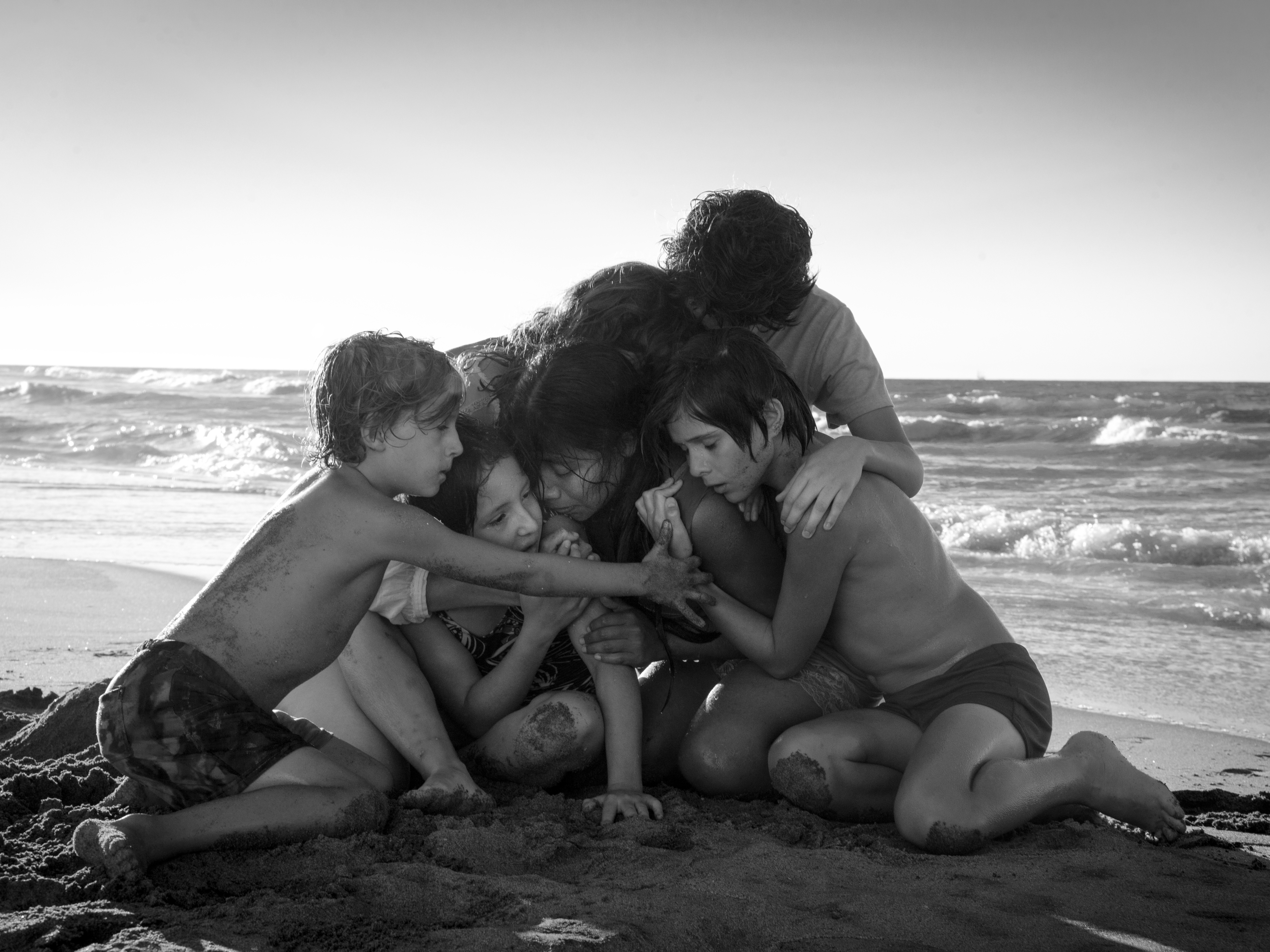I wish more people would learn who Alfonso Cuaron is. The writer/director is as talented as any director working today, and as flexible. Genre doesn’t matter: Cuaron has created something amazing and memorable for fans of coming of age films, space epics, dystopic futures, and Harry Potter. Now apparently, Cuaron has added period drama to his genre list. Roma is art incarnate about a housekeeper in Mexico in the 1970’s. Cuaron hasn’t missed yet, and he isn’t about to now.
The housekeeper’s name is Cleo (Yalitza Aparicio). She works with her friend Adela (Nancy Garcia Garcia) for Senora Sofia (Marina de Tavira) and her husband. We see Cleo as she goes about her day, caring for the kids of the house, and making life more enjoyable for Sofia as well. That is…until the double whammy of separation and pregnancy hits the household. Cleo and Sofia then both have to come to terms with these life altering changes coming to both of their lives.
Roma reminds me of that painting in a museum that makes you stop. You stop first because of some interesting thing you see going on in the painting. Then you look up and take a step back, and realize this thing has tons of stuff going on, so much so that it fills the entire wall with its canvas. Cuaron’s canvas is the cinema, and he uses all of the power that canvas can provide. We start out simple and intimate, slowly moving through Sofia’s house as Cleo goes about her day cleaning and taking care of the kids. We then see peeks of the outside world, bustling with activity, joy, and excitement when Cleo and Adela go meet a couple of boys on their days off, shot like a film strip with us staring horizontally at Cleo and Adela as they run through the Mexican streets. After the pregnancy reveal, the scope expands more. We see Cleo visit the Mexican countryside, and how the rich/poor dynamic works there. When Cleo is near pregnancy’s term, we pull even further out during a breathtaking scene where Cleo is shopping for a crib for her baby…while a political riot is breaking out with people frustrated at the Mexican government, and what hospital conditions are like for a pregnant woman during a riot. What day to day terror to be living through! As Cuaron expands the canvas little by little, we get a fuller picture of just what life is like for our heroine, and what life was like in Mexico in 1970 during this tumultuous time in the country’s history.
And yet, even while Cuaron is pulling veils from our eyes at the sheer scope of his vision, we never lose sight of who we are supposed to be focused on. Cleo’s story comes across as a woman making due with her unfortunate circumstances. Born with no power to speak of, she quietly sits there and takes any abuse given to her by more powerful people, biding her time to get through the day. One technique that Cuaron uses brilliantly to show this is give the powerful people similar but less drastic circumstances than the one’s Cleo is going through in her own life. Sofia is coming to grips with a man leaving her with kids, completely unaware most of the time that the same thing has happened to Cleo as she is about to have one. My favorite scene of this is during a forest fire in the countryside, where all the helpers/working class are working together to put out a fire, and the rich sort of sit idly by or sing, like this is a beautiful game or something. Because Cleo is stuck in this powerless position all the time, she grows accustomed to just being quiet, when maybe she shouldn’t sometimes, like a heartbreaking tragic moment in the third act of the movie. However, that tragic moment has life altering consequences, and we see how the effects of that moment start the changes in Cleo on a family vacation to Tuxpan, and how she might be summoning courage to the forefront she didn’t know she had.
Alfonso Cuaron likes to tell simple stories with large stakes and even larger worlds around them, and Roma fits right in. Watching the movie, you feel like you’re watching a director working in another league compared to his colleagues. Who else working today comes close to Cuaron’s talent? His Mexican bretheren, ironically. Between Cuaron, Guillermo del Toro, and Alejandro Inarritu, you have 4 of the last 5 Best Director Winners at the Oscars. And Roma makes it clear what those guys were going through when they were being raised to become the talents they are today.

